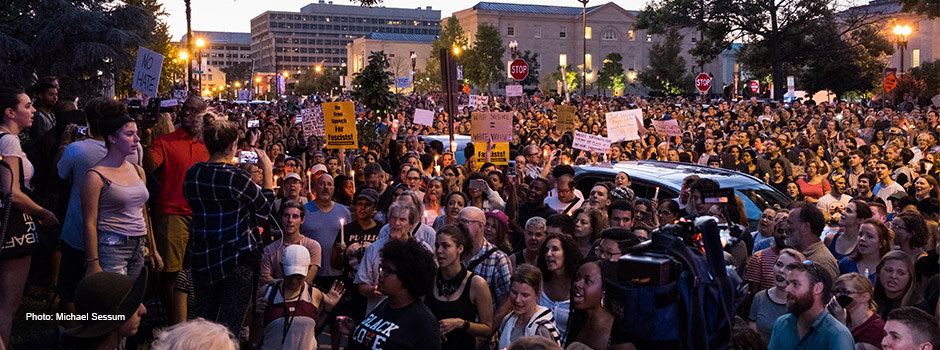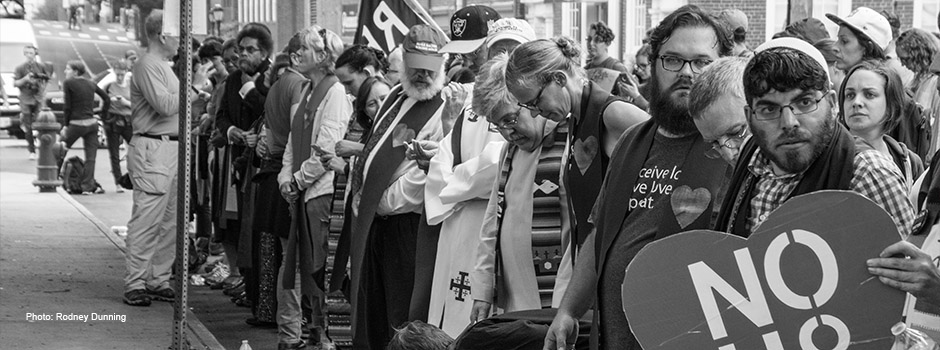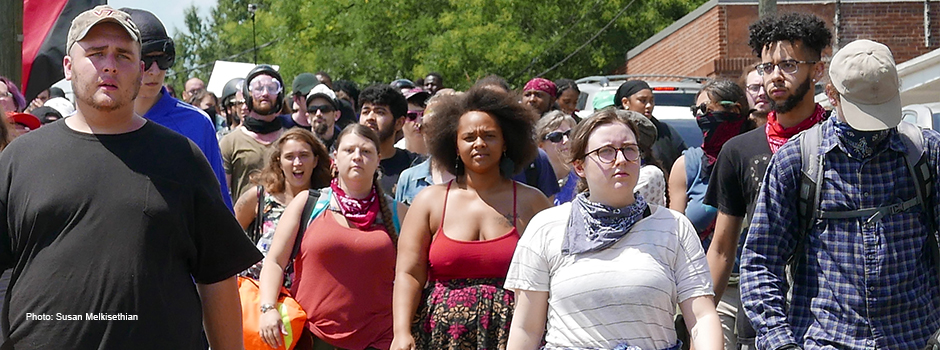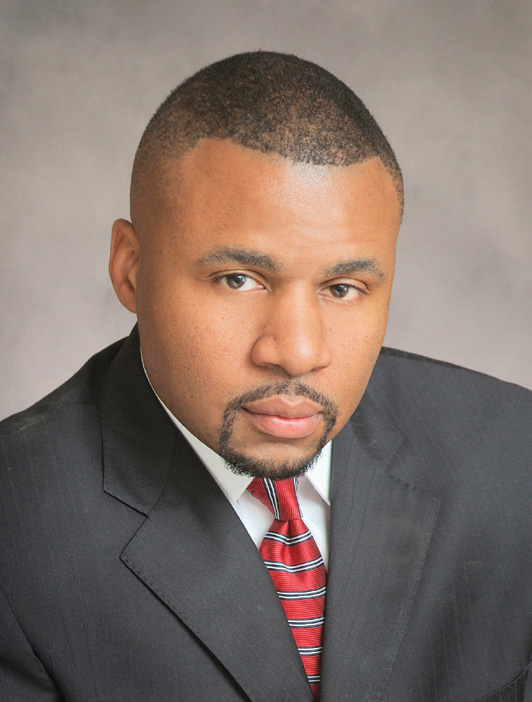Blog
After Charlottesville: What Now?

Hatred and evil are once again on full display on the American national stage. We grieve the loss of Heather Heyer, the peaceful protestor whose life was callously taken in the terrorist attack in Charlottesville days ago. Our thoughts are with those who were injured fighting to reject bigoted ideology, and with all of us watching who’ve been repeatedly traumatized by racial terror.
White supremacists, Neo-Nazis, and klansmen have yet to learn that they are standing on the wrong side of history. We applaud efforts by people of all races, religious backgrounds, political affiliations and sexual orientations to make this point even more apparent.
What happened in Charlottesville is a national disgrace, but also a symptom of a chronic disease our country has suffered far too long. We acknowledge ourselves as a country founded on the genocide of one people and the enslavement of another, and one whose lingering malady causes us to trade in policies and institutions that isolate, reward, and punish on the bases of race, gender, religion, sexuality, and national origin.

We at the Schott Foundation, however, are compelled by our mission and values to pause and publicly condemn what happened, remind our persuadable but inactive friends of the existence and burgeoning numbers of domestic extremist groups, do our part to ease the pain those groups cause today, and halt their potential for damage in the future.
Every child deserves to live in a healthy living and learning community that provides them an opportunity to learn. This doesn’t occur if hate is prevalent in the air—but it takes love, care, stability and capacity. Our work to achieve equitable educational results for children proves that love is stronger than hate, that inclusion is more beneficial than discrimination, and that justice benefits us all. By partnering with grassroots movements led by people of color, immigrants, and members of the LGBTQ community, we’ve been privileged to be at the forefront of the fightback. Charlottesville only strengthens our commitment to combating racism and other forms of oppression so that every child, and community, has an opportunity to learn and thrive.
As a philanthropic intermediary, we know that philanthropy must be on guard against our field’s tendency to wax hollow in the face of difficult national issues. Procrastination or wavering in the face of white supremacy, however, is a reckless, irresponsible dereliction of our duty. As the symbols of hate fall, we have an obligation in philanthropy to ensure that there remain monuments, pillars and support beams of hope and opportunity. As such, we call on our friends and allies in philanthropy and grassroots movements to avoid shrinking from our obligation to address hate, invest in the resistance, make it personal, shine a spotlight on quiet sympathizers, and proselytize the nation toward our shared vision of a truly democratic homeland.
We must talk about what happened, but we must also align our talk with action to support partners on the front lines of this fight. You are invited to join us in moving critical resources to support our grantees working to enact policies that dismantle and divert from racist structures and invest in our most precious resource: our children.

The wounds and suffering caused by Charlottesville will persist, sadly. We’re disturbed that what used to take place in the dark of night and veiled under white sheets now rides unmasked in the light of day. But our shared valor in the face of evil will also persist, and teach our children a valuable lesson.
One of Heather’s last public Facebook updates read, “If you’re not outraged, you’re not paying attention.” If you are outraged, here are five things you can do right now to channel that energy and begin the hard work of restoring hope in your community.
- Commit to calling out hate in all its forms wherever you encounter it: Write, blog, tweet, record, Snap, Instagram, Facebook Live it. Share what you see.
- Find or plan a solidarity vigil or event, or join a group of progressives near you. Good resources to help include Resistance Near Me and Indivisible. Show up and give what you can of your time and resources.
- Sign petitions to remove confederate symbols across the country and spur government action, like this one at Color of Change.
- Encourage others (white allies, employers, local leaders) to take a race equity training. Here’s one offered by our partners at RaceForward.
- Visit our website to learn more about and connect with our grantees across the South who are daily fighting for equity and justice.
Dr. John H. Jackson is president and CEO of the Schott Foundation for Public Education.



